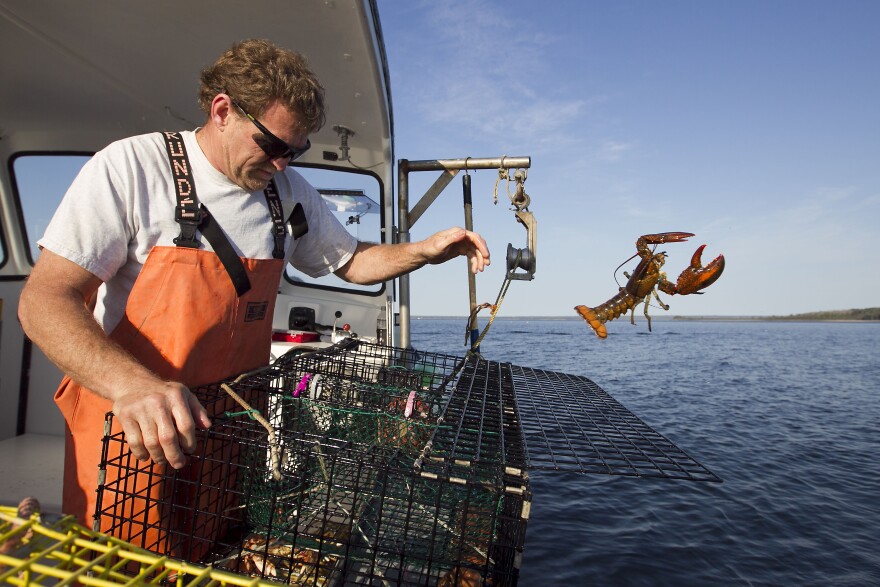A federal judge has rejected a bid by lobstermen and the state of Maine to block new rules aimed at protecting endangered North Atlantic right whales.
The National Marine Fisheries Service issued new rules last year that described where and how lobstermen can fish in federal waters. The agency has said the new rules are intended to protect the remaining population of right whales, which is estimated at about 340.
The plaintiffs, which included both the Maine and Massachusetts Lobstermen's Associations, as well as Maine's Department of Marine Resources and the Maine Lobstering Union, asked a federal judge to block those rules, contending that they overstate the risks caused by their trap lines and create needless economic harm to the lobster industry.
They argue that in drafting those rules, the NMFS committed "scientific errors," in part, because Maine lobstermen say their gear hasn't been involved with a right whale entanglement in nearly two decades.
But in his opinion, U.S. District Judge James Boasberg said the agency rationally drew on the best available data to develop the regulations and that he would not strike them down.
"The agency did not use a substantive presumption to displace scientific judgment; it purported only to resolve uncertainty when the best science left it a range of possible options," Boasberg wrote in his opinion. "The agency’s approach was rational and thus passes muster under arbitrary-and-capricious review."
Gov. Janet Mills and members of Maine's federal delegation blasted the court's decision.
Mills, in a statement released Thursday night, said the NMFS "has consistently interpreted the data in the most conservative way possible," and has put "the burden for right whale protection squarely on the shoulders of Maine’s lobster fishery."
She went on to call the court decision "out of touch with reality." Democratic Rep. Jared Golden of Maine's second congressional district agreed.
"Not only does Judge Boasberg ignore the most important data point — that Maine lobster gear has not been definitively linked to a single right whale fatality — he sets a dangerous precedent that could further open the floodgates for environmental groups seeking to continue to abuse the court system to put fishermen out of business," said Democratic Rep. Jared Golden of Maine's second congressional district. "This ruling is wrong on principle and wrong on the merits.”
But the Conservation Law Foundation, which served as an intervenor on behalf of the National Marine Fisheries Service, said the agency didn't overstep its boundaries.
"It's hard to have perfect data. And as the court concluded in this case, the science is not wrong," said Sean Mahoney of the CLF. "It may be limited to the extent that we don't have as much as we'd like. But the best available science has been subject to peer review, has been subject to public processes and has been subject to people being able to weigh in on it for a number of years."
In its own statement, the Maine Lobstermen's Association said the court and federal regulators have "failed" the state's lobster industry.
"This disappointing decision puts the future of Maine’s lobstering heritage at great risk, and along with it, the livelihoods of thousands of hard-working men and women," the association said Friday morning. "But this is not the end. We won’t go down without a fight.”
Thursday's court decision comes days after an influential seafood rating program gave the American lobster a "red" rating over the danger posed to right whales.




